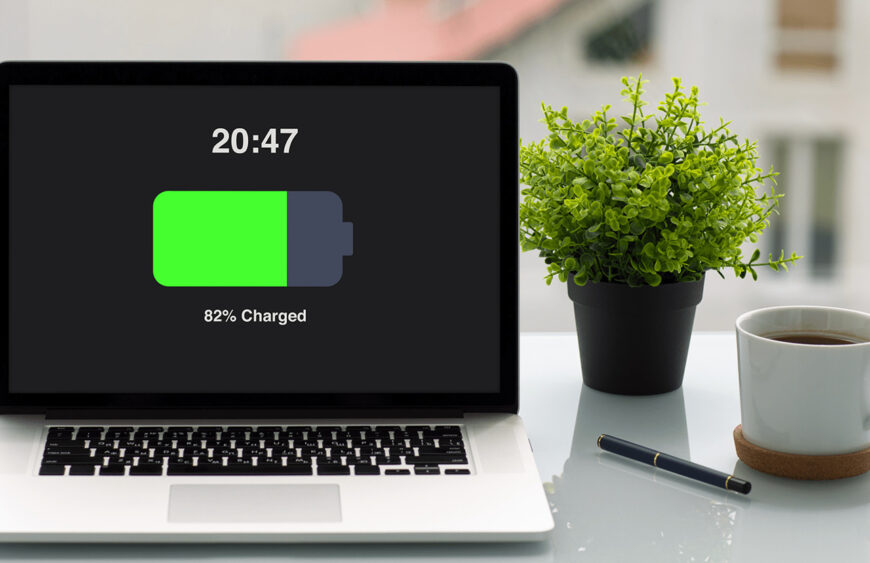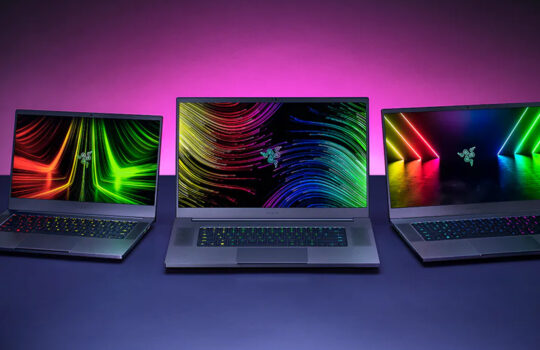Introduction
In today’s fast-paced digital world, laptops have become indispensable tools for work, entertainment, and communication. However, the convenience they offer is often limited by their battery life. Nothing is more frustrating than running out of battery power in the middle of an important task or a binge-watching session. Fortunately, there are several ways to extend your laptop’s battery life and make the most out of each charge.
Understanding Battery Basics
Types of Laptop Batteries
Laptop batteries commonly come in two types: lithium-ion (Li-ion) and lithium-polymer (Li-poly). Understanding the type of battery your laptop uses can help you better manage its lifespan and performance.
How Batteries Work
Batteries generate electrical energy through a chemical reaction between positive and negative electrodes. This energy is stored and discharged to power the laptop’s components. Understanding this process can guide you in optimizing your laptop’s energy consumption.
Battery Lifespan and Degradation
Over time, laptop batteries degrade due to factors like usage patterns, temperature, and charging habits. Learning how to prolong battery lifespan can save you money and hassle in the long run.
Optimizing System Settings
Adjusting Power Settings
Tweaking power settings such as screen brightness, sleep timers, and processor performance can significantly impact battery life without sacrificing usability.
Managing Background Processes
Closing unnecessary applications and disabling background processes can reduce energy consumption, allowing your battery to last longer between charges.
Utilizing Battery Saver Modes
Most operating systems offer battery saver modes that automatically adjust system settings to conserve power. Enabling these modes can extend battery life during critical moments.
Hardware Maintenance for Battery Life
Cleaning Vents and Fans
Dust and debris can obstruct airflow, leading to overheating and increased energy consumption. Regularly cleaning your laptop’s vents and fans can prevent these issues and prolong battery life.
Temperature Management
Avoid exposing your laptop to extreme temperatures, as both hot and cold environments can degrade battery performance over time.
Storage Practices
Storing your laptop with a partially charged battery in a cool, dry place can help preserve its overall health and longevity.
Software Optimization
Updating Drivers and Software
Keeping your laptop’s drivers and software up to date ensures compatibility and efficiency, reducing unnecessary power consumption.
Using Efficient Applications
Opting for lightweight, energy-efficient applications over resource-intensive ones can minimize battery drain during use.
Monitoring Battery Usage
Utilizing built-in tools or third-party software to monitor battery usage can help identify and address energy-hungry applications and processes.
Battery Care and Usage Tips
Proper Charging Habits
Avoid leaving your laptop plugged in for extended periods, as this can degrade battery health. Instead, aim to charge and discharge the battery regularly to maintain optimal performance.
Avoiding Overcharging and Deep Discharges
Overcharging or completely draining the battery can shorten its lifespan. Aim to keep the battery level between 20% and 80% for best results.
Using External Peripherals Efficiently
Disconnecting unnecessary external devices and peripherals when not in use can reduce power consumption and prolong battery life.
Environmental Considerations
Temperature and Humidity Effects
Extreme temperatures and high humidity levels can adversely affect battery performance. Keep your laptop in a comfortable environment to ensure optimal battery health.
Impact of Usage Patterns
Frequent charging and discharging cycles can impact battery longevity. Try to avoid erratic usage patterns and aim for consistent charging habits.
Long-Term Storage Tips
If storing your laptop for an extended period, ensure the battery is at around 50% charge and store it in a cool, dry place to prevent degradation.
Advanced Techniques for Battery Preservation
Undervolting and Underclocking
Advanced users can explore undervolting and underclocking techniques to reduce power consumption and extend battery life, albeit with some performance trade-offs.
Battery Calibration
Calibrating your laptop’s battery periodically can help recalibrate its internal monitoring system, ensuring accurate battery level readings and prolonging lifespan.
Battery Replacement Considerations
If your laptop’s battery performance significantly deteriorates despite optimization efforts, consider replacing the battery with a new one to restore optimal performance.
Future Trends in Battery Technology
Advancements in Battery Technology
Ongoing research and development in battery technology aim to produce batteries with higher energy densities and faster charging capabilities, promising longer battery life for future laptops.
Potential Solutions for Longer Battery Life
Emerging technologies such as solid-state batteries and graphene-based materials hold promise for revolutionizing laptop battery performance, offering longer-lasting and more sustainable power solutions.
Conclusion
Improving laptop battery life is not just about extending usage time; it’s about enhancing productivity and convenience while minimizing environmental impact. By implementing the tips and techniques outlined in this article, you can optimize your laptop’s battery performance and enjoy longer, uninterrupted computing experiences.



